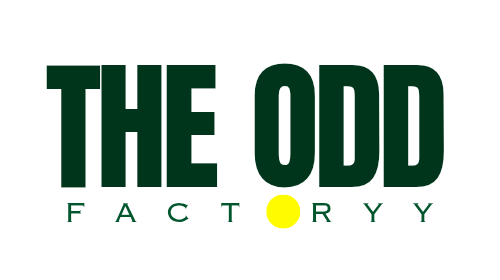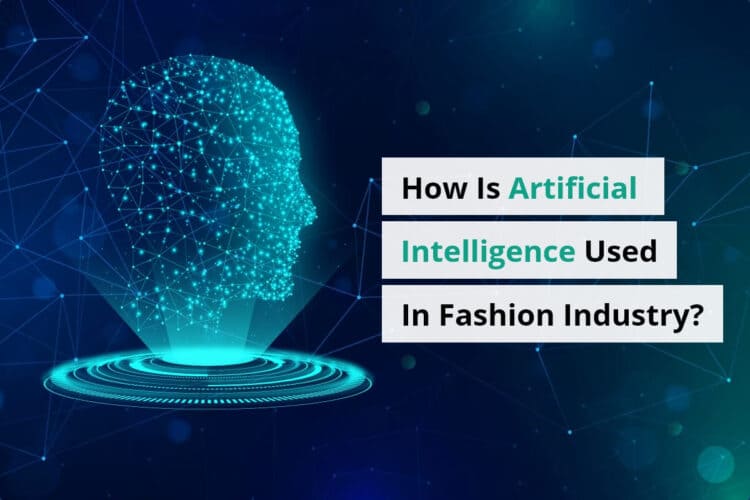In recent years, artificial intelligence (AI) has become increasingly prominent in the fashion industry. With advances in technology and increasing demand for personalized products, the use of AI in fashion is expected to grow exponentially in the years to come.
AI is influencing the fashion industry in a variety of ways, from creating virtual models to optimizing pricing and inventory management. Through a deeper understanding of artificial intelligence in the fashion industry, we can gain insight into how this technology is being used to shape the fashion landscape.
In this blog post, we will explore how AI is changing the fashion industry and what potential applications it may have in the future.
1.Automating The Design Process
Automating the design process is becoming increasingly popular among fashion brands using artificial intelligence. AI-driven design automation enables fashion brands to quickly and accurately create new designs with minimal effort and cost.
At The ODD Factory, a garment manufacturing company, we create AI-generated designs using a combination of machine learning, computer vision, and pattern recognition technologies. This allows for more creative freedom, less time spent on mundane tasks, and an overall more efficient design process.
Additionally, these technologies can be used to provide insights into consumer preferences and trends, allowing brands to tailor their designs to the wants and needs of their target audience.
Automating the design process with AI is poised to revolutionize the fashion industry, allowing fashion brands to create more innovative and personalized designs tailored to the needs of their customers.
2.Automating Production Processes
Automating production processes has become increasingly important in the fashion industry, particularly due to the impact of artificial intelligence. AI has enabled companies to optimize production processes, leading to cost savings through speedy and efficient operations.
AI tools can also provide insights into consumer behaviour, allowing businesses to better tailor their offerings and thus gain a competitive advantage. Additionally, AI-enabled tools can be used to monitor production processes and offer recommendations for improvement.
Furthermore, AI can be used to improve customer experience by providing automated customer support, accurate product recommendations, and personalized product recommendations, thus leading to increased customer satisfaction. The impact of artificial intelligence on the fashion industry is undeniable and is likely to continue to grow in the coming years.
3.Automated Inventory Management
Automated inventory management has become a critical tool for modern businesses. By utilizing technologies such as artificial intelligence (AI) and machine learning, organizations are able to track and analyze inventory levels in real time, allowing them to make critical decisions quickly and accurately.
The application of AI in the fashion industry has enabled retailers to better manage their inventory levels, optimize stock availability and reduce operational costs. AI-driven solutions can analyze customer demand to recommend accurate restocking levels and automate the delivery of products to customers, resulting in improved customer satisfaction.
Automated inventory management also improves accuracy and reduces the risk of human errors, resulting in increased efficiency, cost savings and customer service. In short, automated inventory management is an invaluable tool for businesses, allowing them to maximize profits and stay competitive in the ever-changing retail landscape.
4.Utilizing AI in Supply Chain Management
Utilizing AI in supply chain management can help fashion market companies increase their efficiency and profitability. AI-driven solutions can provide fashion market companies with insights into inventory and stock levels, which can help them reduce and prevent overstocking and understocking.
Additionally, AI can be used to automate certain processes in the supply chain, such as order fulfillment and route optimization, which can help improve customer service and reduce costs. Furthermore, AI can help fashion market companies better predict customer demand, allowing them to better manage their resources and optimize their supply chain.
AI in fashion market can help companies improve the accuracy and speed of their production processes, helping them stay competitive in a rapidly changing market.Ultimately, AI can be a powerful tool in helping fashion market companies keep their supply chains operating smoothly and efficiently.
5.Tracking Customer Preferences Through AI
AI has revolutionized customer preference tracking, allowing custom clothing manufacturers in India to better understand the needs of their customers.
At The ODD Factory, a garment manufacturing firm, we use AI-driven customer analytics to gain insights into customer preferences, trends, and behaviors. AI-driven analytics can provide manufacturers with detailed analytics that can help them create more tailored product offerings and better personalize customer experiences. AI-driven analytics can also predict customer demand and suggest products that may fit customer preferences.
AI-driven analytics can also help manufacturers identify potential customer segments, allowing them to better target their products and services to specific demographics. By leveraging AI-driven analytics, custom clothing manufacturers in India can stay ahead of the competition and create products and services that are tailored to their customers’ needs.
6.Enhancing Customer Experience Through AI-Based Recommendations
The use of AI-based recommendations is a powerful tool for enhancing the customer experience. By leveraging AI algorithms, businesses can develop tailored recommendations that help customers find the exact product they are looking for.
For example, bespoke clothing manufacturers in Melbourne can use AI-based recommendations to suggest clothing items to customers based on their preferences. This would result in a personalised shopping experience that would ensure customers find the items they are looking for quickly and easily.
AI-based recommendations are also cost-effective, as they save businesses time and money that would otherwise be spent manually curating and creating product recommendations. This makes AI-based recommendations a great tool for businesses looking to improve their customer experience.
Conclusion
Artificial Intelligence is revolutionizing the fashion industry, from the design process to customer service. AI-driven technologies are enabling designers to create more complex patterns, faster production cycles, and a more personalized customer experience.
As AI technologies continue to advance, the future of AI in fashion industry looks bright, with the potential to revolutionize the industry and create new opportunities for designers, retailers, and customers alike.



